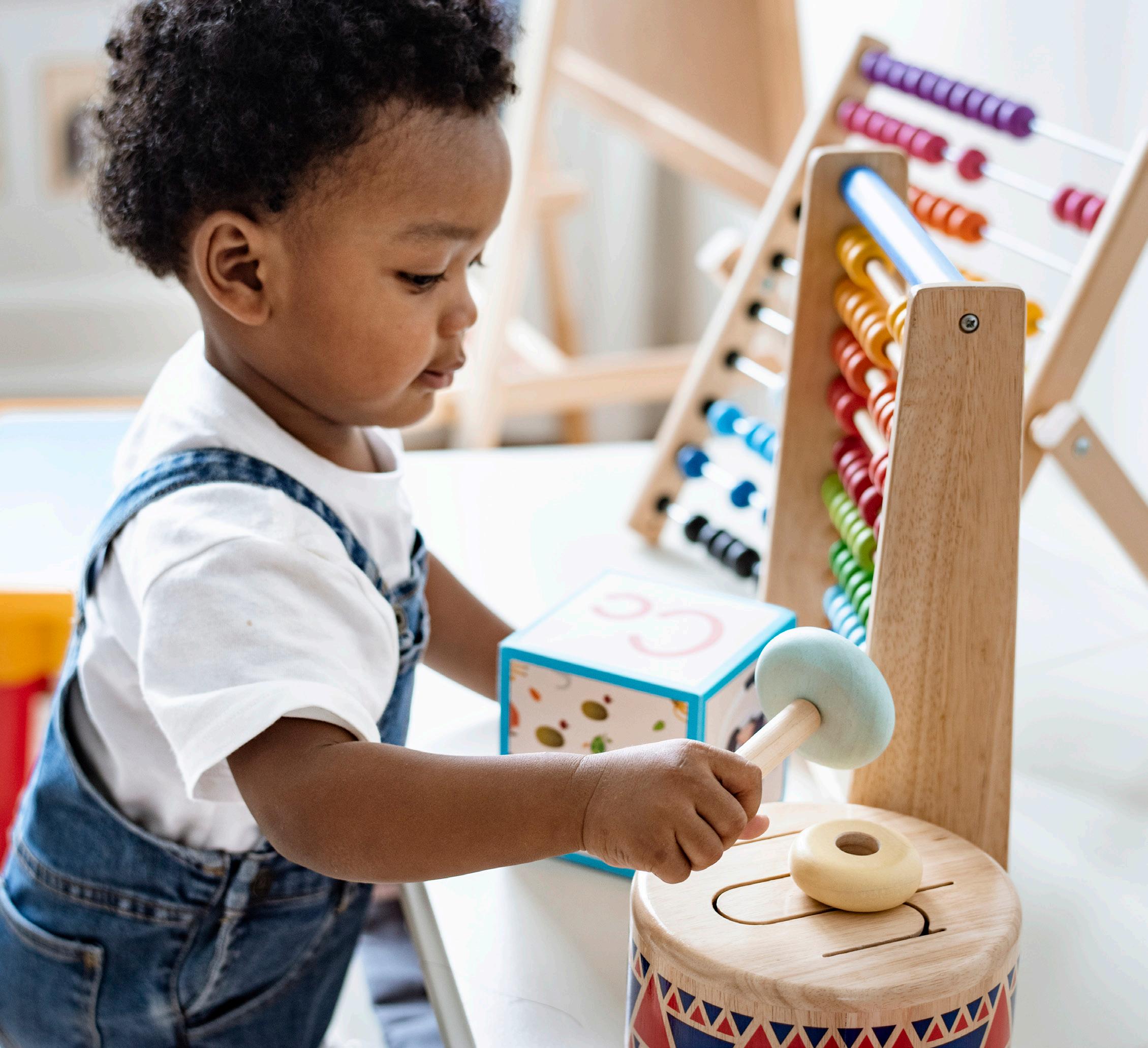
4 minute read
Is My Child Ready?
Just because most preschools will accept children at around 2 years old doesn’t mean your child is ready for preschool when she reaches that age.
Is she socially, emotionally and physically ready to participate in a structured educational program with a group of children? The following will help your think about some of the important skills needed for preschool.
Is your child independent?
Your child should also be able to take care of some basic needs, like washing her hands, eating her lunch without assistance and sleeping alone. Most preschools will want your child to be potty trained, but some accept diapers.
Has your child spent time away from you?
If your child has been cared for by a babysitter or a relative, he’ll be better prepared to separate from you when he’s at preschool. Kids who are used to being apart from their parents often bounce right into preschool with hardly a backward glance. If your child hasn’t had many opportunities to be away from you, you might want to schedule some - a weekend with grandma, for instance, or a day with your sister and her kids. But even if you can’t work out your separation issues up front, don’t worry too much; many children leave Mom or Dad for the first time to go to preschool and they do just fine. The trick is to help your child adjust in short doses. Many preschools will allow you to drop off your child for an hour or two during his first few days there; as he gets more used to his environment, you gradually work up to a full day.
Can she work on projects on her own?
Preschool usually involves lots of arts and crafts projects that require concentration and the ability to focus on an individual task. If your child likes to draw at home or gets engrossed in puzzles and other activities on her own, she’s a good candidate for preschool. But even if she’s the kind of child who asks for help with everything, you can start
CONTINUED NEXT PAGE >>>


Advanced Academics for Gifted and Talented Students in PK-Grade 8 www.sageschool.org • Foxboro, MA • 508-543-9619



getting her ready by setting up playtimes where she can entertain herself for a half hour or so. Is she ready to participate in group activities?
Is he used to keeping a regular schedule?
Preschools usually follow a predictable routine: circle time, play time, snack, playground, then lunch. There’s a good reason for this. Children tend to feel most comfortable and in control when the same things happen at the same time each day. So, if your child doesn’t keep to a schedule and each day is different from the last, it can help to standardize his days a bit before he starts preschool.
Does she have the physical stamina for preschool?
Whether it’s a half-day or full-day program, preschool keeps kids busy. There are art projects to do, field trips to take, and playgrounds to explore. Does your child thrive on activities like this, or does he have trouble moving from one thing to the next without getting cranky? Another thing to consider is how and when your child needs to nap. Preschools usually schedule nap time after lunch. If your little one can keep going until then or even all day like a wind-up toy, he’s set. If he still needs a midmorning snooze, it might not be time yet to go to school.
Why Preschool?
Think carefully about what your goals are for sending your child to preschool. Do you just need time for yourself or daycare for your child? There may be other options if it seems he isn’t ready yet for the rigors of school.
Kindergarten Success
Most experts agree that there are plenty of other ways for children to develop the skills necessary to be successful in kindergarten, including attending a good daycare facility or spending quality time at home with you or another loving caregiver. A study by the National Institutes of Child Health and Human Development found that children do best if they’re cared for by someone who is genuinely concerned about their well-being and development, and who makes sure they’re doing a variety of age-appropriate activities. They needn’t be enrolled in an organized preschool for that.
If you find that the main reasons you want to send your child to preschool are that he seems eager to learn new things and explore, he isn’t getting enough stimulation at home or daycare, or he seems ready to broaden his social horizons and interact with other children, chances are it’s the perfect time to start preschool. ²








